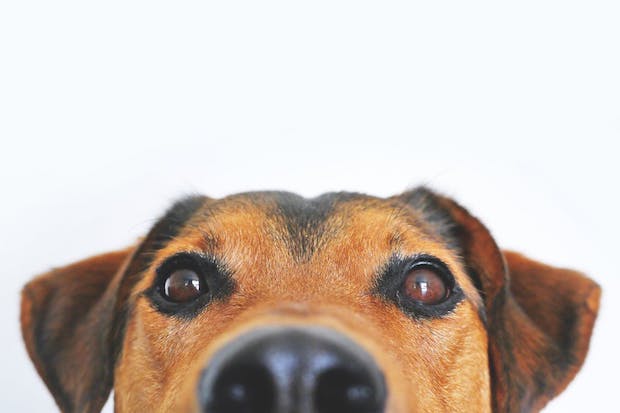Come Learn the Animal Sounds!
Dogs, turkeys, and lions are all over the world, and they all make the same sounds.
These sounds, though, are portrayed differently in our spoken languages.
Recently I went on a cruise with my friend and her family. At some point, my friend and her brother were teasing their Russian stepmother over something she’d said in the past about what roosters say. She took it in stride and said the Russian animal noise again: кукареку (kukareku). As a French speaker, I know French roosters in the provincial countryside scream "cocorico" in the mornings, so to me it wasn’t so odd.
I later had a (very adult looking) conversation with a French friend discussing a few animal noises and verbs I wasn’t familiar with. Our bleating, screeching, and mooing have produced the following list. Memorise them and take yourself to the nearest French zoo for a fun, animalistic conversation...

Le chien – dog
Que fait le chien ? Le chien fait ouaf ouaf ! (What does the dog say? The dog says woof woof!)
Verbs for dog sounds: aboyer (bark), grogner (growl), hurler (howl), and japper (yips).
Le chat – cat
Que fait le chat ? Le chat fait miaou ! (What does the cat say? The cat meows!)
Verbs for cat sounds: miauler (meow) and ronronner (purr).
La poule – chicken
Que fait la poule ? La poule fait cotcotcodet ! (The chicken goes bock bock bock!)
Chicks (les poussins) in French say piou-piou.
Verbs for chicken sounds: caqueter (cluck).
Le coq – rooster
Que fait le coq ? Le coq fait cocorico ! (What does a rooster say? The rooster says cock-a-doodle-do!)
Verbs for rooster sounds: chanter (here, to crow)
Le corbeau – crow
Que fait le corbeau ? Le corbeau fait crôa crôa ! (What does the crow say? Caw caw!)
Verbs for crow sounds: croasser (to crow)
Le pigeon – pigeon
Que fait le pigeon ? Le pigeon fait rou rou ! (What doe the pigeon say? Coo coo!)
Verbs for pigeon sounds: roucouler (to coo)
L’oiseau – bird
Que dit l’oiseau ? L’oiseau fait cui cui ! (What does a bird say? Chirp chirp!)
Verbs for bird sounds: gazouiller (to chirp)
This is for birds in general.
Le dindon – turkey
Que fait le dindon ? Le dindon fait glou glou ! (What does a turkey say? Gobble gobble!)
Verbs for turkey sounds: glouglouter (to gobble)
Le canard – duck
Que fait le canard ? Le canard fait coin coin ! (What does the duck say? Quack quack!)
Verbs for duck sounds: cancaner (here, to quack)
Le cochon – pig
Que fait le cochon ? Le cochon fait groin groin ! (What does the pig say? Oink oink!)
Verbs for pig sounds: grogner (here, to oink)
La vache – cow
Que fait la vache ? La vache fait meuh ! (What does a cow say? Moo!)
Verbs for cow sounds: mugir (here, to moo)
Le cheval – horse
Que fait le cheval ? Le cheval fait hiiii ! (What does the horse say? Neigh!)
Verbs for horse sounds: hennir (to neigh, winny)
L’âne – donkey
Que fait l’âne ? L’âne fait hi-han ! (What does the donkey say? Hee-haw!)
Verbs for donkey sounds: braire (to bray)
Fun French tip: Have trouble remembering the order of both y and en in a sentence? Remember what the donkey says: y en !
Le lion – lion
Que fait le lion ? Le lion fait raoh ! (What does a lion say? Roar!)
Verbs for lion sounds: rugir (to roar)
La grenouiller – frog
Que fait la grenouille ? La grenouille fait croac croac ! (What does the frog say? Ribbit ribbit!)
Verbs for frog sounds: coasser (here, to ribbit)
So there we have it! You can now speak with animals.


Blog submitted by: Alex at The French Property Network - Cle France.
This blog was originally posted on The French Language Blog pages.